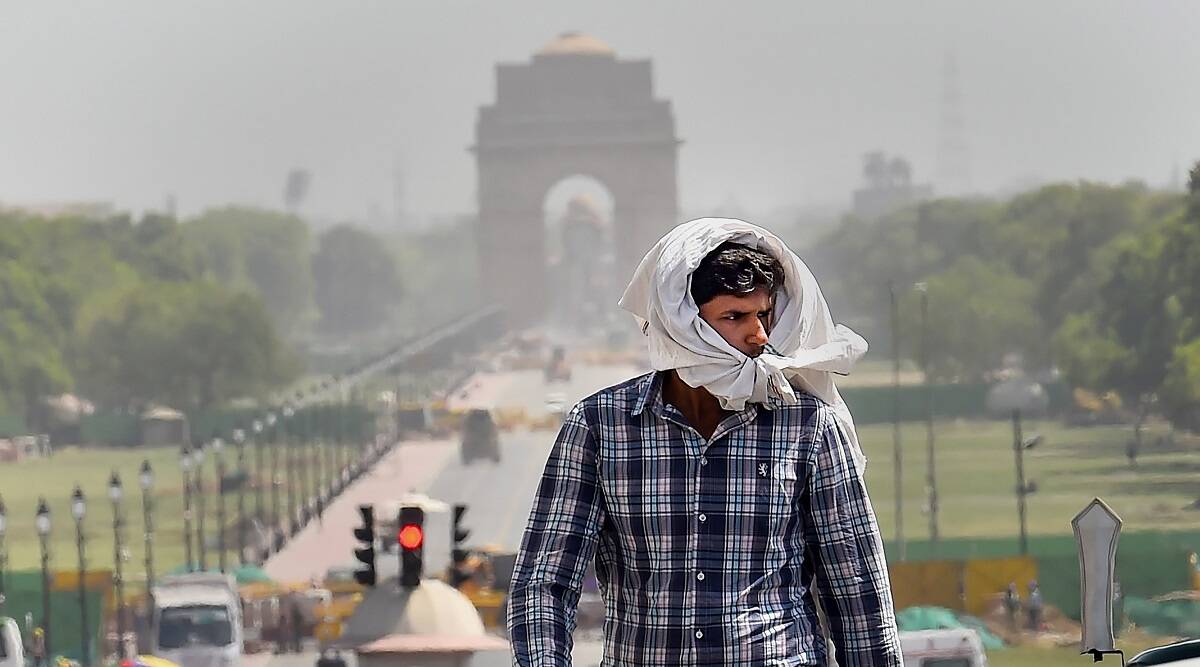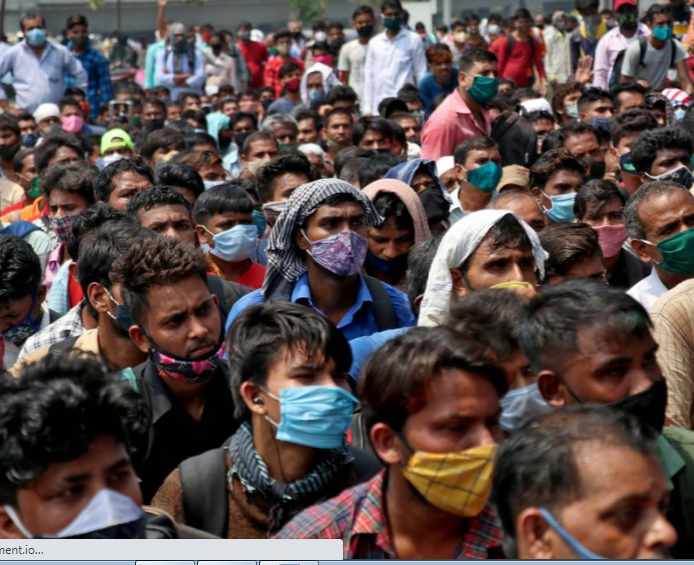Heat and extreme weather events and impact on health from climate change make it the biggest global health threat of the 21st century, says a report by The Lancet medical journal on Wednesday, November 28.
Scientists said climate change impacts – from heatwaves to worsening storms, floods and fires – were surging and threatened to overwhelm health systems, with hundreds of millions more people already suffering in the last two decades.
According to the Lancet Countdown 2018 on Health and Climate Change report, globally each person was exposed to an additional 1.4 days of heat wave between 2000 and 2017 compared to the baseline period of 1986 to 2005. In 2017, an additional 157 million heat wave exposure events took place, which is 18 million more heat exposure events than in 2016.
India is one of the countries worst hit by heat stress and labour hours lost.
From 2014-2017, the average length of heatwaves in India ranged from 3-4 days compared to the global average of 0.8-1.8 days, and Indians were exposed to almost 60 million heatwave exposure events in 2016, a jump of about 40 million from 2012, the report released Thursday showed.
India also lost nearly 75,000 million labour hours in 2017 (equivalent to a year’s work for 7% of the working population), compared to about 43,000 million hours in 2000, an increase of more than 30,000 million labour hours lost in less than two decades.
In India, average temperatures are set to rise alarmingly, the Lancet Countdown report on health and climate change says. By the end of the 21st century, Northern, Central and Western India may witness temperature rise averaging 2.2 to 5.5°C.
The impacts, the authors on India policy brief note, vary with different sectors with the agriculture being most vulnerable as compared to the industrial and services sector.
“For India, whose large agriculture economy makes up 18% of the country’s GDP and employs nearly half the population, this translates into substantial climate-related impacts on the workforce and economy,” said Dr K Srinath Reddy an author of the India policy brief of the Lancet report, according to a report in The Times of India (TOI).
For the agriculture sector alone, the labour hours lost increased from about 40,000 million hours in 2000 to about 60,000 million hours in 2017, says a briefing paper for Indian policy makers by the Public Health Foundation of India (PHFI) based on the Lancet Countdown report.
The report comes ahead of the 24th UN Climate Change Conference, also known as COP (Conference of Parties) – annual meetings held to assess and negotiate ways to deal with climate change. Issues likely to be discussed at this year’s conference are transfer of climate funds from developed countries to developing nations for adaptation to climate change impacts, and how nations can keep global temperature rise under 1.5 degree Celsius.
The report was authored by people from 27 organisations, including doctors, academics and policy professionals, who relied on written works and primary data reports from various countries.
“What we saw in the data shared is that the number, duration and intensity of heat waves has been increasing in India, particularly in the last decade. There are spikes in heat wave related morbidity and mortality. Lancet had shared summary data sets with us,” said Dr Poornima Prabhakaran, associate professor and deputy director of the Centre for Environmental Health at PHFI, co-author of the briefing paper.
Mortality rates for malignant melanoma have increased significantly in Europe, the Americas, and the Western Pacific.
Low and middle-income countries, India included, are likely to be worst affected by climate change, given weaker health systems and poorer infrastructure, experts said, adding that this may lead to further widening of existing health and economic inequities.
Heatwaves are associated with increased rates of heat stress and heat stroke, exacerbation of heart failure and acute kidney injury from dehydration. Children, the elderly and those with pre-existing morbidities are particularly vulnerable.
Dr Reddy was quoted by The Times of India (TOI) as saying that identifying local heat hot spots through appropriate tracking and modelling of meteorological data is needed to tackle the crisis.
Observing that a recent report “places India amongst the countries who most experience high social and economic costs from climate change”, the study makes several recommendations. These include identifying “heat hot-spots” through appropriate tracking of meteorological data and promoting “timely development and implementation of local Heat Action Plans with strategic inter-agency co-ordination, and a response which targets the most vulnerable groups.”
The report prepared jointly with the Public Health Foundation of India also urges a review of existing occupational health standards, labour laws and sectoral regulations for worker safety in relation to climatic conditions.




















